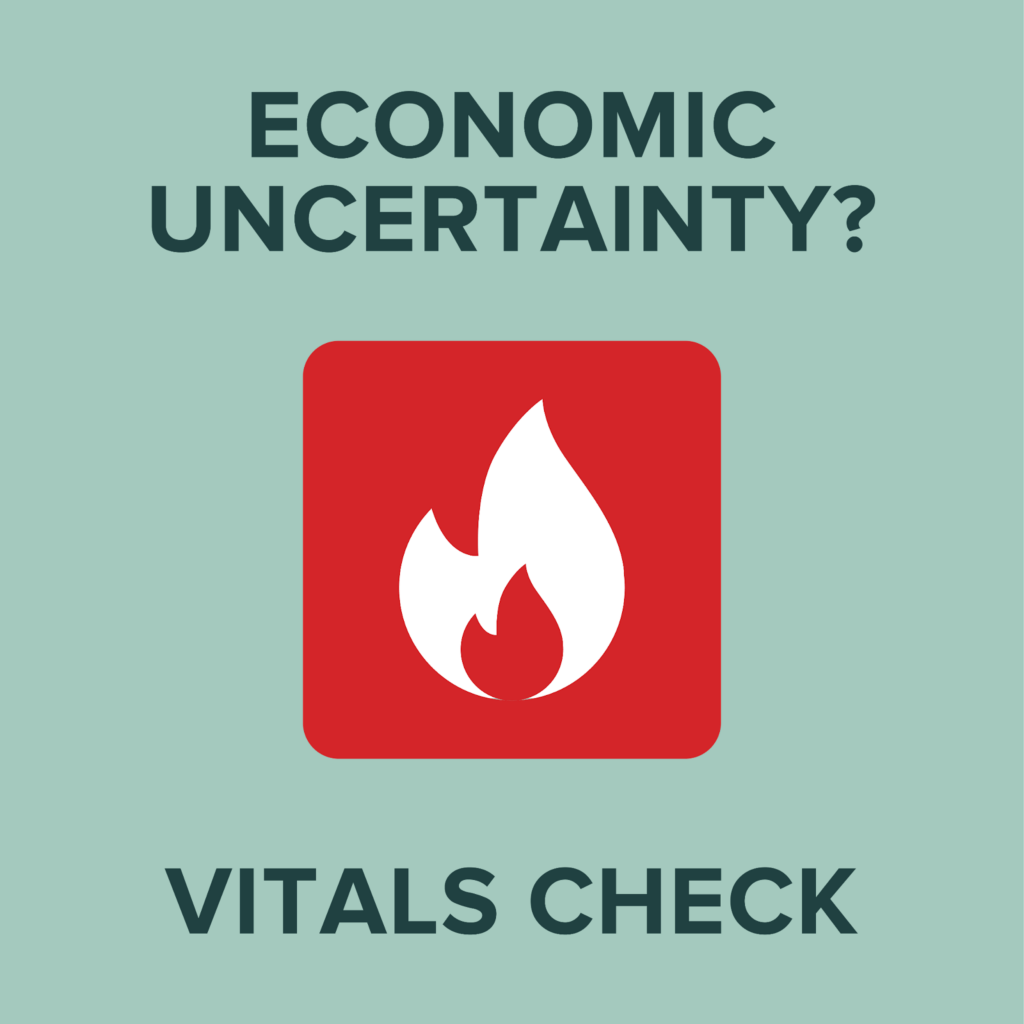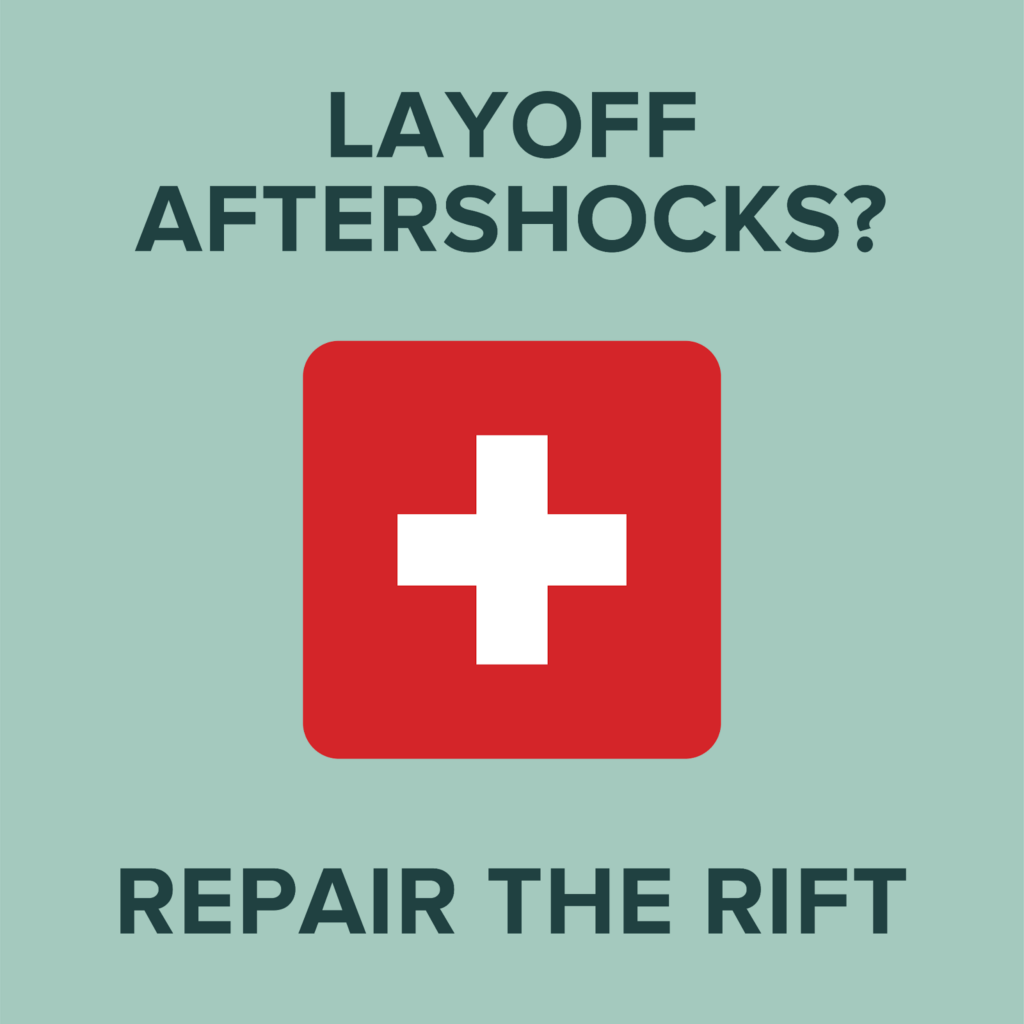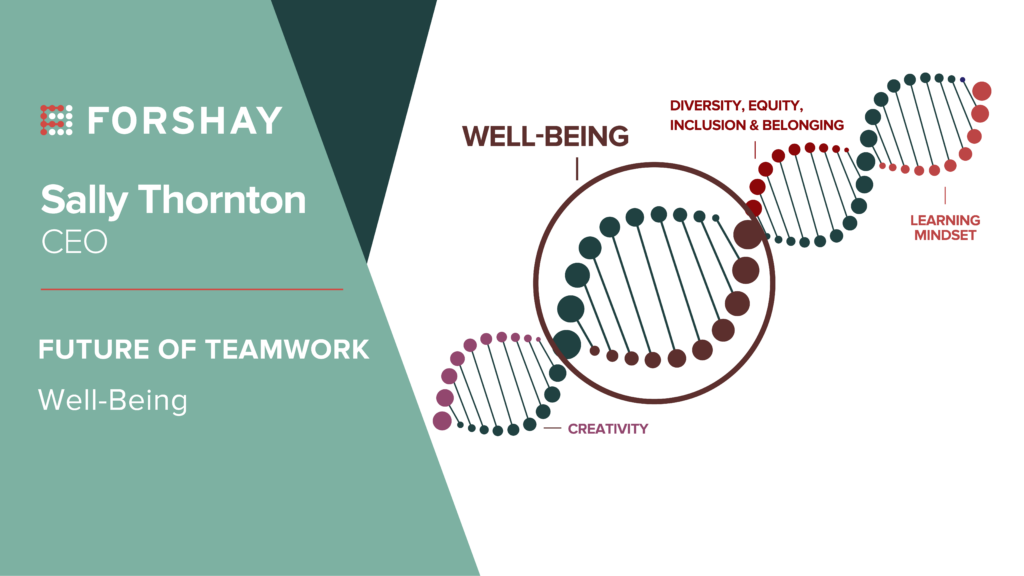How to increase flow and reduce friction for remaining teams.
While layoffs may achieve some short-term corporate objectives, they can wreak havoc with existing PeopleOps strategies. SVB’s failure is also sending shock waves through the tech sector. And while there is a lot of virtual ink spilled covering layoffs and bank failures, what isn’t always talked about is how much layoffs and economic uncertainty affect remaining employees.
So what can you do after the smoke clears? We’d like to address a few strategies that can reduce unnecessary friction in an already-tricky economic year.
Here is our Forshay 3-step SOS quick-start strategy, backed up by data-driven research, to intercept a downward spiral in morale, re-align the collaboration and help set your teams up for success in 2023.

Forshay SOS Step 1 – Vitals Check
Employees who escape layoffs are often “shoulded,” even if only subtly or subconsciously. They should feel grateful they still have a job; they should not express anxiety because after all, their best work buddy is now unemployed.
While they likely do feel grateful, that doesn’t mean they are doing well – or able to do their best work, well.
In fact, their well-being may be suffering. Stanford business Professor Jeffrey Pfeffer’s extensive research shows that layoffs can do more harm than good in general. One of the downsides is there are mental health implications, not just for the individual fired, but the people you want to keep.
In Forshay’s Future of Teams DNA concept, one of the four DNA strands is Well-Being.
So our first suggestion is to check the team’s pulse in multiple ways that get to an authentic response. Create a safe space for people to be honest. This not only gives some immediate relief but also gives you data on where to focus with step 2.
You may find people open up more easily to a compassionate, outside expert. If you need a buffer, we are here for you.

Forshay SOS Step 2 – Repair the Rift
The inconvenient truth is your best people don’t stick around out of relief they weren’t laid off. Depending on the current vibe in the office or the team zoom chat, they may be strategizing their exit.
Layoffs can hurt your overall retention strategies. For example, resignations on top of layoffs can take a hit at your DEI efforts, which is directly tied to business results (in case you missed it –the CIO of IBM corrected the lack-of-journalism by this WSJ writer on why DEI matters).
If we recognize that fear of being laid off is a major dampener of productivity, what is the opposite message that could be powerful? The opposite of being asked to leave is being encouraged to contribute because your authentic contributions are valued and valuable.
In our post about the essentials for high team performance, we point out that a sense of belonging is critical. Belonging is that next-level of inclusion where we’re inviting team members not only to sit at the table, but for their input and contribution.
So in Step 2, we suggest doubling down on asking for your employees’ ideas and continuing to offer as much transparency as you can so you can all focus on doing your best work.
And if asking for employees’ voices and contributions just feels like asking people to do more and more work, where can you provide support to employees who are now faced with doing more with fewer resources?

Forshay SOS Step 3 – From Layoff to Long-Term Flow
In the midst of pressure to cut costs, it may seem counterintuitive to look for ways to invest in your employees. The data tell us otherwise. An analysis by the National Bureau of Economic Research found that companies that invested in employee training and development during economic downturns saw higher productivity and profitability in the long term.
That profitability bump is interesting. Employee churn dings the bottom line over time. Maybe we could move the focus of the L-word to long-term instead of layoff, as in taking the long view about staffing to reduce churn from layoffs and resignations.
Not sure where to start? We can help you with that, as what is right for your team and company will vary depending on your specific goals and challenges. Call us, we’ll help you figure it out.
One of the first considerations for companies trying to get a handle on their staffing is their stage of growth. We get a lot of questions about this. Stay tuned for our April post about how to optimize staffing and team performance for startups, series funding phases, go-to-market (GTM), and future growth.








